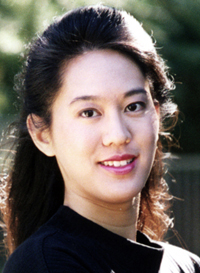Iris Chang
(Author, Journalist) | |
|---|---|
 | |
| Born | March 28, 1968 Princeton, New Jersey, U.S. |
| Died | November 9, 2004 (Age 36) South of Los Gatos, California, U.S. |
Cause of death | "suicide" |
| Nationality | US |
| Alma mater | Johns Hopkins University, University of Illinois at Urbana-Champaign |
| Children | Christopher Chang |
| Spouse | Bretton Douglas |
| Victim of | • Psychiatric medication? • Japanese Deep State? • CIA? |
Chinese-American journalist, author of historical books and political activist. Suspicious "suicide". | |
Iris Shun-Ru Chang was a Chinese American journalist, author of historical books and political activist.[1][2] She wrote the first book about the Nanking massacre that reached the mass market in the United States.[3]
Death
On November 9, 2004, Chang was found dead in her car by a Santa Clara Valley Water District employee on a rural road south of Los Gatos, California and west of State Route 17,[4] in Santa Clara County. Investigators concluded that Chang had shot herself through the mouth with a revolver. At the time of her death, she had been taking the medications Depakote and Risperdal to stabilize her mood; her parents believe that psychiatric drugs worsened her mental health.[5]
It was later discovered that she had left behind three suicide notes each dated November 8, 2004. "Statement of Iris Chang" stated:[6]
I promise to get up and get out of the house every morning. I will stop by to visit my parents then go for a long walk. I will follow the doctor's orders for medications. I promise not to hurt myself. I promise not to visit Web sites that talk about suicide.
The next note was a draft of the third:
When you believe you have a future, you think in terms of generations and years. When you do not, you live not just by the day — but by the minute. It is far better that you remember me as I was—in my heyday as a best-selling author—than the wild-eyed wreck who returned from Louisville. ... Each breath is becoming difficult for me to take—the anxiety can be compared to drowning in an open sea. I know that my actions will transfer some of this pain to others, indeed those who love me the most. Please forgive me.
The third note included:
There are aspects of my experience in Louisville that I will never understand. Deep down I suspect that you may have more answers about this than I do. I can never shake my belief that I was being recruited, and later persecuted, by forces more powerful than I could have imagined. Whether it was the CIA or some other organization I will never know. As long as I am alive, these forces will never stop hounding me. Days before I left for Louisville I had a deep foreboding about my safety. I sensed suddenly threats to my own life: an eerie feeling that I was being followed in the streets, the white van parked outside my house, damaged mail arriving at my P.O. Box. I believe my detention at Norton Hospital was the government's attempt to discredit me.
Related Document
| Title | Type | Publication date | Author(s) | Description |
|---|---|---|---|---|
| Document:The Mysterious Deaths of Ernest Hemingway and Iris Chang | article | 1 August 2011 | Darrell Hamamoto |
References
- ↑ http://archive.today/2021.08.27-203141/https://en.wikipedia.org/wiki/Iris_Chang
- ↑ http://www.irischang.net/about/ saved at Archive.org saved at Archive.is
- ↑ https://charlierose.com/videos/4650 ~ 13:50
- ↑ https://www.sfgate.com/health/article/Historian-Iris-Chang-won-many-battles-The-war-2679354.php
- ↑ https://www.theglobeandmail.com/life/relationships/iris-chang-committed-suicide-now-her-mother-aims-to-resurrect-her-reputation/article625192/
- ↑ https://www.sfgate.com/health/article/Historian-Iris-Chang-won-many-battles-The-war-2679354.php saved at Archive.org saved at Archive.is